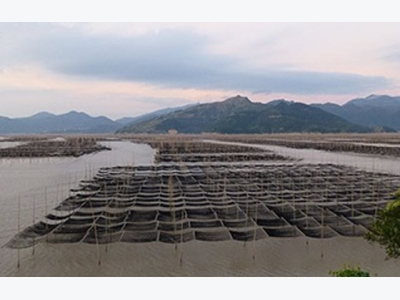Damning water pollution report hurts aquaculture prospects in China

The outlook for low-quality aquaculture in China has dimmed further as a report published by the country’s Ministry of Environmental Protection (MEP) last week that showed the quality of China’s water and agricultural soil remain in dire straits.
In its annual report, posted on the website of the National People’s Congress Standing Committee, the ministry states that water quality worsened in 2016 compared to 2015 in some key freshwater bodies of water like the Liao River and Songhua River, two large northerly rivers that feed into aquaculture systems.
China’s rural water resources have come under sustained pressure the past decade due to the intensification of animal husbandry with pig and poultry farms producing vast amounts of nitrogen-rich slurry that have caused harm to the ecosystems of many of the country’s rivers and lakes.
Soil pollution is also a problem facing the nation's seafood producers. China is being forced to go after industries polluting soil – including shrimp farms and aquaculture ponds – after it was revealed that 36 percent of soil surrounding industrial land didn’t meet government standards. The MEP report didn’t elaborate how the data was gathered or what the standards are. However soil pollution – caused by decades of lax enforcement of environmental laws in favor of industrialzation - has become a government priority in recent years due to the implications for food security.
The MEP will continue to crack down on polluting farms, said Chen Jining, head of the ministry. He promised more fines and tighter enforcement of laws to reduce the amount of sewage being released. A polluting tax based on quantity of farm waste produced will be levied beginning January 2018.
With its own natural resources stretched, China has in recent years sought to reduce agricultural-related pollution and water overuse by relaxing restrictions on imports of key crops like soy, grains, beef and pork.
Already growing at a healthy pace, imports of seafood may be set to accelerate as a result of the change in policy direction.
Gao Fu Mao
Contributing Editor reporting from Beijing, China
Related news
 Over 102 billion vnd to improve the competitiveness of the fishery
Over 102 billion vnd to improve the competitiveness of the fishery Strengthening the competitiveness of the fishery in the context of economic integration" with the total cost of 102.2 billion vnd
 Seafood enterprises comment on many contents of Customs declaration
Seafood enterprises comment on many contents of Customs declaration Seafood enterprises said that according to the draft Circular, a Bill of Lading must be declared on a Customs declaration
 Seafood exporters slam red tape
Seafood exporters slam red tape The Government will likely ease the requirement for seafood enterprises to submit declarations of conformity with food safety regulations